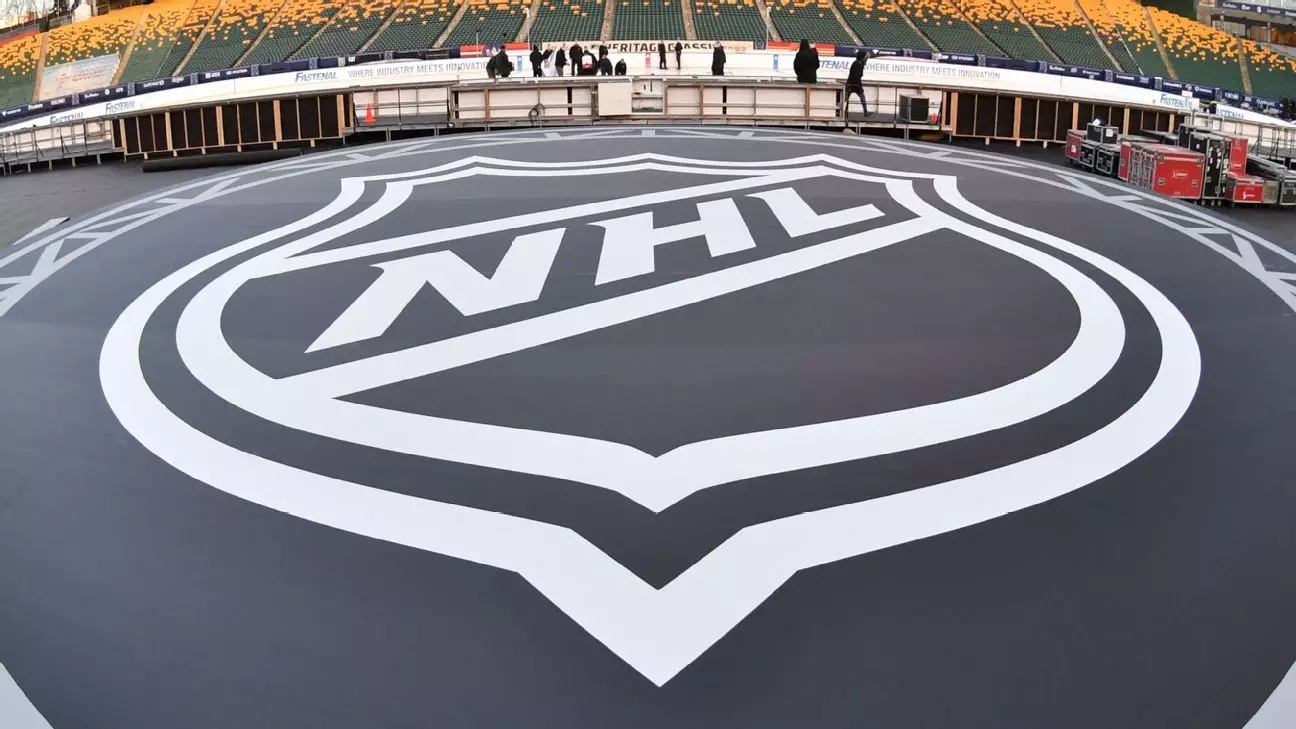The world of professional sports is often spotlighted for its thrilling moments and athletic prowess, yet the narrative doesn’t always extend to the importance of education and lifelong learning. In a significant advancement for NHL players, a new partnership between the NHL Players Association (NHLPA) and Boston College’s Woods College of Advancing Studies offers a fresh perspective on the value of finishing college degrees, fostering a bridge between athletic careers and academic achievement.
On a recent Wednesday, a pivotal agreement was announced that aims to facilitate educational opportunities for NHL players—both current and former. This initiative emerges from a recognition that many athletes do not complete their degrees amid the demands of their sports careers. The Woods College of Advancing Studies is designed specifically for non-traditional students, making it an optimal choice for these players, many of whom face time constraints from rigorous training schedules and travel commitments.
Marty Walsh, the executive director of the NHLPA and a Boston College alumnus, shared his own academic journey, illustrating the diverse community within Woods College. From undergraduate students to individuals in their 70s, the inclusive environment allows everyone to pursue their educational aspirations. “I went to school with people that were undergrads, that went to school at BC, taking classes at night,” Walsh stated, encapsulating the essence of a university that promotes education as a lifelong endeavor.
This agreement with Boston College marks a notable evolution in the relationship between the NHLPA and educational institutions. David Goodman, the dean of Woods College, emphasized the initiative’s role in reducing the friction that historically hindered players from returning to academia. By offering flexible study options—online, in-person, or hybrid—Wood’s College accommodates the unique circumstances of its students, ensuring that returning scholars can balance their educational pursuits with personal and professional commitments.
The ease of transferring previously earned credits is another crucial aspect of this agreement. Many players enter the NHL with college credits from their previous academic pursuits, often leaving school prematurely to chase their dreams on the ice. The opportunity to transition these credits into a degree is a game changer, providing a pathway that may have previously seemed daunting.
Players like Brooks Orpik exemplify the successful culmination of academic and athletic achievements. After a prestigious career that included winning two Stanley Cup championships, Orpik returned to Boston College and celebrated earning his degree in 2022. His candid reflection on the experience—rooted in commitments made to his family and mentors—highlights the personal pride that comes from completing a college education, which he described as “different than anything [he had] accomplished athletically.”
Similarly, Josh Jooris, who transitioned from Union College to the NHL, is currently enrolled, reaffirming the message that education is an achievable goal regardless of when one decides to pursue it.
The NHLPA’s initiative is timely, coinciding with similar agreements from other sports organizations, such as Major League Baseball. Walsh noted that this multifaceted approach to player development extends beyond the ice rink, equipping players with the tools they need for future success.
He acknowledged the reality that many players retire in their 30s, at a stage when they still have decades of life left to navigate. The importance of education as a safety net cannot be overstated, particularly for those who may not have considered their post-career life while immersed in their athletic pursuits. “When they come back after having been successful, coming back to one’s education is not necessarily a sexy move,” Woods remarked, pointing to the societal pressures that can undervalue academic achievement.
Embracing education not only enhances individual futures but also enriches the fabric of professional sports. By investing in their players’ education, leagues like the NHL demonstrate a commitment to holistic development, ensuring athletes are well-prepared for both their professional responsibilities and lives beyond sports. This initiative may encourage a cultural shift within athletic organizations, stimulating a broader conversation about the responsibilities of sports unions and the importance of lifelong learning.
As the landscape of professional athletics continues to evolve, the partnership between the NHLPA and Boston College signifies a progressive stride towards fostering educated athletes ready to excel both on and off the ice.

